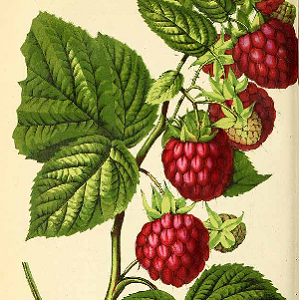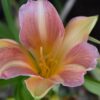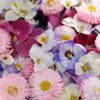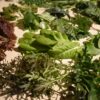For 2020 we are kicking off Herb of the Month with the International Herb Association’s Herb of the Year – BERRIES! Anything and everything in the Rubus species, including all the hybrids… so we’re talking blackberry, raspberry, boysenberry, loganberry, tayberry, dewberry, marionberry and many more.
Which is just great as it’s currently berry season with bushes positively dripping with these summer fruits.
Berries are well known edibles – we enjoy them fresh, frozen, or cooked and preserved in jams, jellies, vinegars and syrups – there’s so many fantastic ways to use these nutritious fruit in sweet and savoury dishes alike.
But did you know that the leaves of some species, notably blackberry and raspberry make a good herbal tea too? They are often included in commercial herb tea blends.
With many traditional healing properties, berries are not only tasty, but healthful too – raspberry leaf tea is common uterine tonic, given to pregnant women in the last three months of their pregnancy, and those who suffer from painful menstrual cramps. Raspberry leaves are full of vitamins and minerals, making them a powerful nutrient rich plant- specifically: magnesium, potassium, iron, calcium, and vitamins B, A, C, and E. Both raspberry and blackberry leaves are also astringent, and can be gargled for sore throats, mouth ulcers and gum inflammations, and given internally for diarrhoea, haemorrhoids, cystitis etc.
Raspberries prefer a good deep well-drained loamy soil that is slightly acidic. Open and sunny spots are best, although they tolerate some shade. Self fertile, you generally don’t need more than one berry plant – but you’ll probably end up getting more than one anyway! While the rootstock is perennial, the stems are biennial. New plants form easily from underground runners away from the parent plant.
Blackberries prefer well-drained loamy soil too, but tolerates poorer soils and are drought tolerant when established. Produces in full sun, but also in part shade, although berries may take a while longer to ripen. Similarly to raspberries, they grow an a perennial rootstock with biennial stems.




